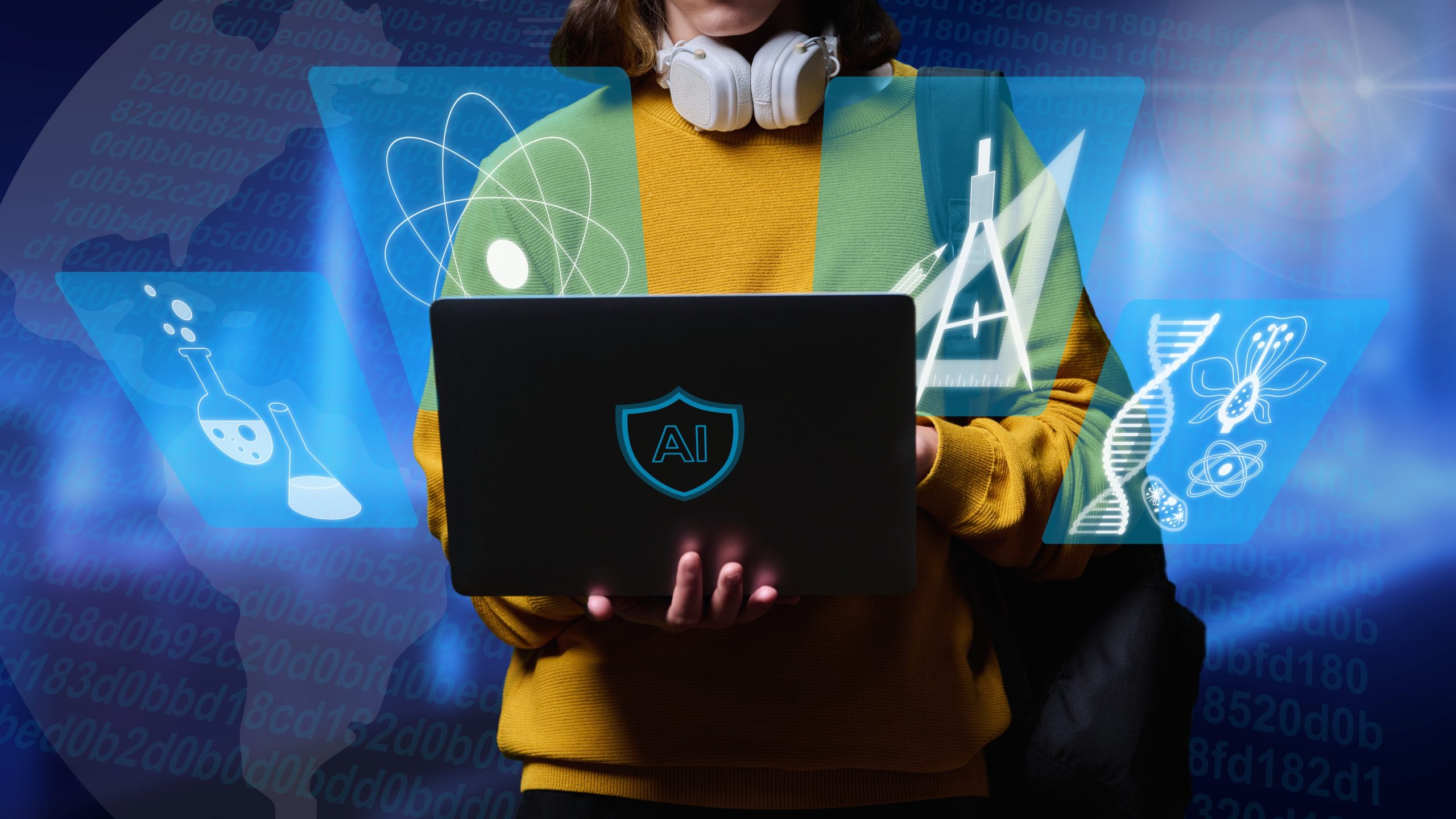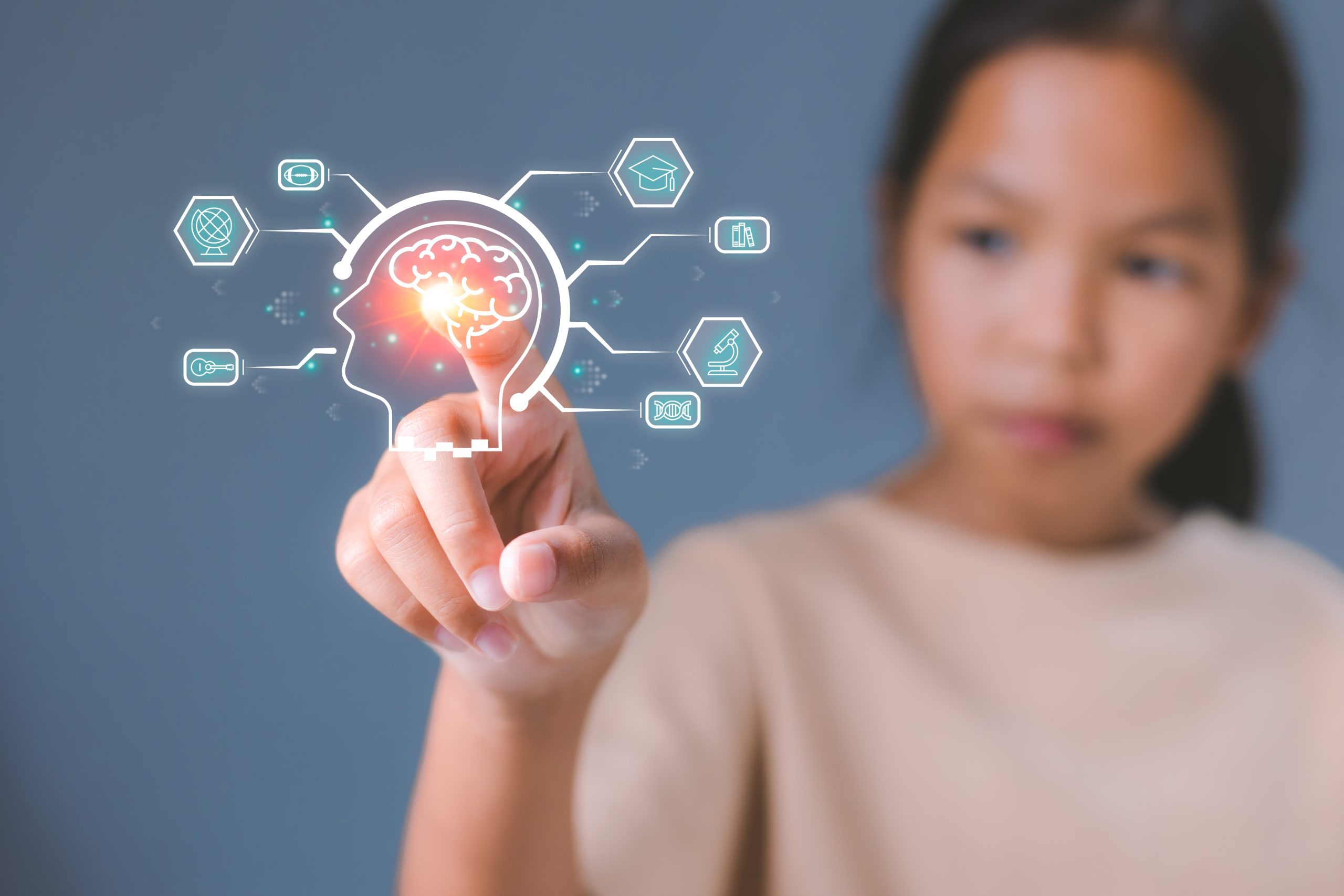AI in Education: Reimagining the Role of Teachers

DGM – Key Accounts
Swift AI Integration and Deployment with Quixl, AI accelerator. Request a Demo

DGM – Key Accounts
Artificial intelligence (AI) enabled tools are becoming mainstream in the education domain – with both teachers and students exploring its capabilities with equal interest. Most of the conversations have been around how students may tend to learn less by using AI tools that may result in superficial understanding of concepts without true comprehension or deeper knowledge retention. Of equal significance is also about teachers – exploring their evolving roles, how pedagogy will change, and how teachers will adapt in the classroom.
Technology adoption in the education domain has been a very slow and difficult process. It took many years to modernize education delivery – and for the better part of that period was devoted to leveraging technology on streamlining many administrative tasks. Education media on the other hand supplemented classroom sessions but teachers were central to the process of how students learned – specifically in the prek-12/school domain. Education has always been about two key participants – the teacher and the student.
AI’s disruptive role in the education value chain has necessitated critical review of the fundamental teacher-student dynamic. Leveraging AI isn’t a threat but is a core capability that is needed for the transformative role teachers would play in the AI era. Here are some of the potential changes we may see:
From Knowledge Provider to Learning Facilitator
As AI readily provides access to information, teachers will transition from primary knowledge sources to guides and mentors, focusing on facilitating learning, fostering critical thinking, and promoting independent research.
Focus on Higher-Order Skills
AI can automate repetitive tasks, freeing up teachers to concentrate on developing essential 21st-century skills like problem-solving, creativity, collaboration, communication, and emotional intelligence.
Immersive and Interactive Learning
AI can create engaging and interactive learning environments through virtual reality, augmented reality, and gamification. This approach can make in-classroom interactions more dynamic and immersive, enabling teachers to join students as co-participants in the process of knowledge discovery.
Personalized Learning
AI can personalize the learning experience by tailoring content, pace, and methodology to individual student needs and learning styles. This could involve teachers heavily leveraging adaptive learning platforms, intelligent tutoring systems, and personalized recommendations.
Data-Driven Instruction
AI can analyze student performance data to identify areas of strength and weakness, enabling teachers to provide targeted interventions and support. This data-driven approach can help teachers focus on students who need attention and personalize instruction.
Augmented Teaching
AI can assist teachers in grading assignments, providing real-time feedback, and recommending appropriate educational materials. This enables teachers to dedicate more time to personalized interactions and tailor instruction for students requiring additional support.
Accessibility and Equity
AI-powered tools can make education more accessible to students with disabilities and those from diverse backgrounds. This could involve text-to-speech translation, language learning tools, and assistive technologies more dynamic helping teachers in attending to students with special needs.
At this point in time, it’s appropriate to acknowledge the many unknowns as we look into the distant future. However, it is commonly understood that the path to discovery is not always a smooth ride, but rather like a roller-coaster – exhilarating sometimes and equally fearful. The best way to move forward is to address the challenges we can anticipate and be ready to deal with the unknowns.
Teacher Training: Educators will need training and support to effectively integrate AI tools into their teaching practices and develop the skills necessary to thrive in an AI-powered learning environment.
Digital Divide: Ensuring equitable access to technology and internet connectivity will be essential for preventing the digital divide from further exacerbating existing educational inequalities.
Ethical Implications: The use of AI in education raises ethical concerns about data privacy, bias in algorithms, and the potential displacement of teaching jobs. Addressing these concerns will be crucial for ensuring equitable and ethical implementation of AI in schools.
The future of education is brimming with possibilities to tailor learning experiences, boost engagement, and elevate outcomes for every student. At the end of the day, success hinges on the tools we employ and how effectively we utilize them. Thoughtful and strategic approaches are crucial in leveraging these technological advancements. Above all, the human element remains paramount in education: the unwavering dedication, boundless creativity, and infectious passion of teachers who motivate and nurture students’ learning and growth.

The Impact of LLM on Education: Simplifying AI for Better Learning. Large Language Models are AI systems that can understand and produce language similar to humans, developed through training on enormous text datasets...more

A Historical Perspective on Educational Innovation Throughout history, the classroom has been a crucible of innovation, constantly evolving to meet the changing needs of society. From the introduction of the humble chalkboard in the early 19th century to the rise of artificial intelligence in the 21st, each technological advancement has promised to revolutionize the way […]..more

A new chapter in education is beginning, driven by significant advancements in Artificial Intelligence (AI). As we approach 2030, a skills-first approach is set to set to transform learning, with the global AI in education market projected to reach an impressive $47.7 billion. This isn’t just a trend; it’s a major shift that promises to […]..more

Understanding Learning Outcomes Learning outcomes are precise, measurable statements outlining what students are expected to know, do, or value by the end of a course or program. These outcomes guide both instruction and assessment, ensuring educational goals are met effectively. Educators often categorize them into three domains: Cognitive (knowledge-based): Understanding key concepts or theories. Affective […]..more

Critical Thinking and AI in Education In an era marked by rapid technological advancements and complex global challenges, the ability to think critically and solve problems creatively has never been more crucial for students. These skills are foundational not only for academic success but also for thriving in the uncertain future that lies ahead. Enter […]..more

AI enhances collaborative learning by personalizing and enriching educational experiences. Challenges include digital divide, adaptation, data privacy, and AI biases, requiring careful integration and ethical considerations...more
© 2025 | Integra Software Services Pvt. Ltd.